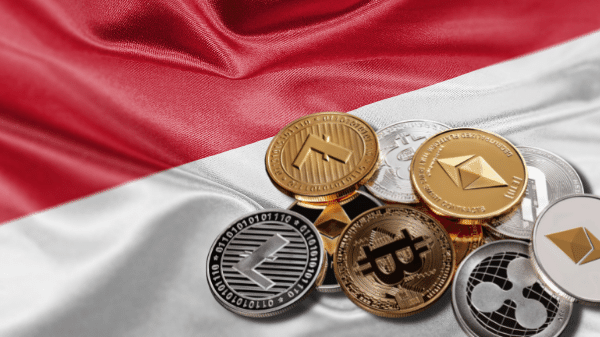
The Indonesian Ulema Council Majelis Ulama Indonesia, the country’s top Islamic organization with Shariah compliance authority, has officially classified the usage of cryptocurrency as a money or trading crytocurrency is haram or prohibited under Islamic law for Muslims.
The National Religious Council of Indonesia has stated that cryptocurrency does not follow Sharia teachings and should not be utilized by Muslims, casting doubt on the future of the internet coinage in the country with the world’s largest Muslim population.
Banks, billionaires, and even countries are investing in the year’s hottest financial asset, but it is haram, or forbidden, according to Asrorun Niam Sholeh, head of the fatwa, or religious decrees, at the Indonesian Ulema Council.
Sholeh claimed that the online currency contains aspects of uncertainty, wagering, and damage, and thus violates the core precepts of Islamic law. In Indonesia, the national Ulema Council judges on Sharia compliance, and the country’s finance ministry and central bank regularly consult it on Islamic financial concerns.
To be approved by the MIU, cryptocurrencies like Bitcoin must satisfy Shariah principles as a commodity or a digital asset and demonstrate a “clear benefit,” according to Sholeh, who spoke after an expert MIU session.
Having 231 million Muslims representing over 86.7% of the nation’s population, Indonesia boasts the world’s biggest Muslim community.
The MUI decree is not legally enforceable, and it does not imply that cryptocurrencies are prohibited in Indonesia. But, it will prevent Muslims from considering investing in cryptocurrency and local institutions from producing or providing services in cryptocurrency.
The MIU examined Bitcoin as one of the Ulama Fatwa Commission, which is tasked with using Islamic law to confront a few of Indonesia’s most pressing social, political, economic, and legal challenges.
In October, a regional branch of Nahdlatul Ulama, one of Indonesia’s largest Islamic groups, ruled cryptocurrencies haram under religious law.
The Indonesian government, on the other hand, has stated that it will not put an outright ban on bitcoin, as China has done. In Indonesia, crypto assets can be traded alongside commodities futures, but they cannot be used as a currency. Meanwhile, the government is attempting to establish a crypto market by the end of the year, and Bank Indonesia is investigating the possibility of a central bank digital currency.
It’s not a good time to be kicked out of the crypto world.
Following their historic rise in October, cryptocurrencies have been on a tear. Ether, Ethereum’s main cryptocurrency, is trading at an all-time high of $4,708.60. Bitcoin hit a new all-time high of $68,000 on Wednesday, beating its previous record from late October. JPMorgan Chase & Co., a New York-based investment firm, said that Bitcoin may rise to $146,000 in the long term as it clashes with gold.
Southeast Asian governments have had a mixed approach to cryptocurrencies so far. Following the Chinese government crackdown, cryptocurrency exchange Huobi Global has ceased its business in Indonesia’s neighbor Singapore.
Furthermore, Siam Commercial Bank, one of Thailand’s top banks and the country’s largest shareholder, just purchased Bitkub Online, the country’s largest cryptocurrency exchange.
The announcement comes only days after Bitcoin temporarily broke beyond the $69,000 barrier for the first time in history on Wednesday.
On cryptocurrency legislation, the Indonesian government has taken a mixed attitude. Local authorities have chosen to allow bitcoin trading while placing a nationwide ban on cryptocurrency transactions in 2017. Pintu, a local crypto exchange, raised $35 million in August from some of the industry’s most prominent investors.


